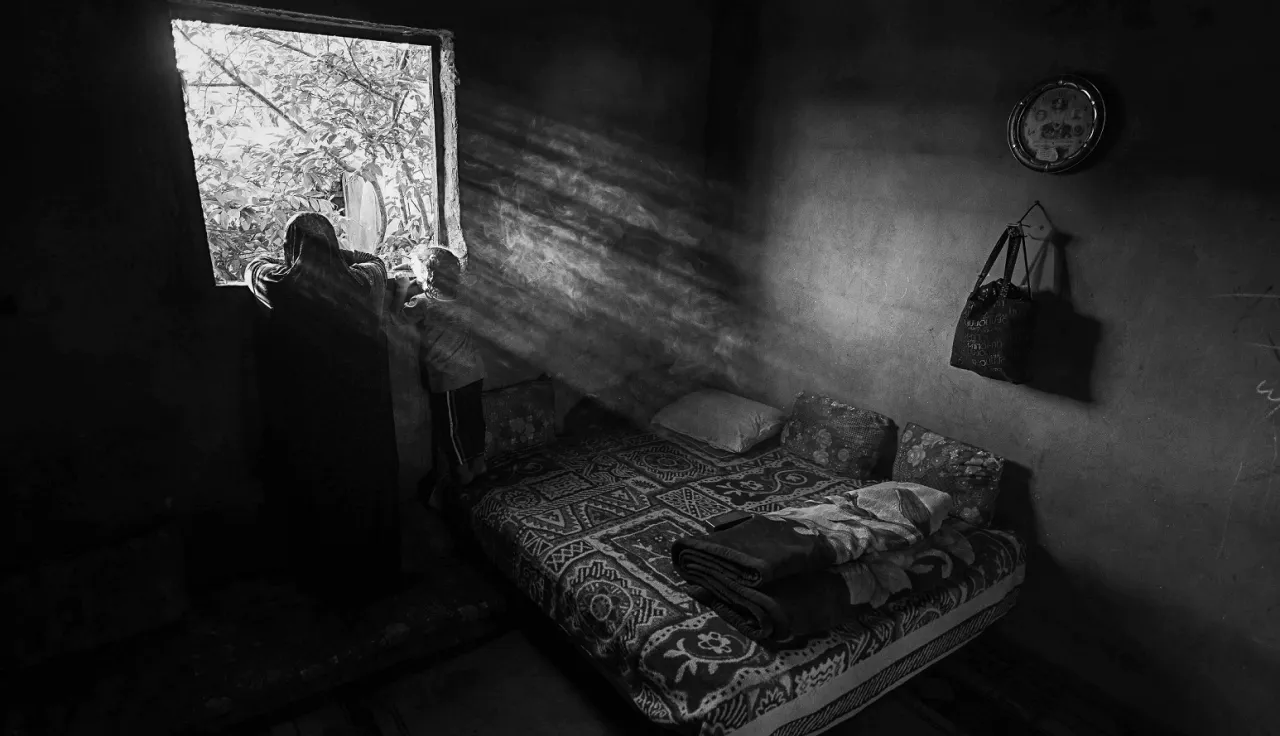Two thirds of the respondents said they are dependent on their families for income, whilst 40% reported having no hope of finding a job opportunity in the next 15 years.
One-fifth of the Gaza population are youth aged between 18 and 29 years old. The majority of the youth who responded to the ICRC’s survey believe that the next phase of their lives will continue to be defined by the same critical challenges they have faced in recent years.
“Wars and closure have negatively impacted all youths in Gaza, not just me. War is just bad enough as it is, adding the closure to that makes it too much to bear,” Laith Rashdan, a 25-year-old university graduate, told the ICRC.
Fifteen years of restrictions imposed by Israel on the movement of goods and People in and out of Gaza have significantly contributed to a steady deterioration in the economic and humanitarian situation in Gaza. This has limited access to essential services, jobs and opportunities outside of the occupied Palestinian territory.
“The needs of youth go beyond the economic dimension in Gaza, as half of the young people say that they have endured significant mental health issues and one-third of them face social problems. Youth residing in Gaza desperately need a pathway towards hope and opportunity away from pain and suffering driven by hostilities and movement restrictions,” said Nicolas Geeraert, the deputy head of the ICRC’s sub-delegation in Gaza.
A sustainable and long-term solution that provides youth in Gaza with dignified opportunities lies in the hands of the authorities responsible for the multiple rounds of hostilities and movement restrictions. The ICRC calls on them to immediately address the deepening humanitarian consequences that prevent access to essential services as well as contribute to mental health challenges and rising unemployment amongst youth in Gaza.
All we ask for is to live normally like others worldwide. We want to be able to move freely, travel, and have decent jobs,” Nouran Al-Zaeem, 23, told the ICRC.
Note to editors
The ICRC’s survey about youth in Gaza was conducted between 18 July and 03 August 2022. The ICRC conducted the online survey via its Arabic Facebook page titled “The ICRC in the Occupied Territories”, which has +100K followers, to measure what 15 years of restrictions on the movement of goods and people have left on the lives of youth in the Gaza Strip. The sample of respondents was randomly selected from across the Gaza Strip governorates. The study approach was a 5-7-minute questionnaire in Arabic. The sample included 385 participants who fall within the age group of 18-30 years old, which is representative as per the methodology followed in the survey.
Established in 1863, the ICRC operates worldwide to help people affected by conflict and armed violence and to promote the laws that protect victims of war. As a neutral, independent and impartial organization, its mandate stems essentially from the Geneva Conventions of 1949. it is based in Geneva, Switzerland, and works in more than 100 countries.
For more information and to arrange interviews, please contact:
Suhair Zakkout (occupied Palestinian territory), +972 599 255 381
szakkout@icrc.org
Tali Shamir (Tel-Aviv), +972 524 160 917
tshamir@icrc.org
Imene Trabelsi (Beirut), +961 3 13 83 53
itrabelsi@icrc.org
Gaza’s Youth: Suspended Lives, Fading Opportunities –Survey Key Findings
- The General Environment for Youth:
- 88.8% of the respondents consider life in Gaza to be abnormal compared to other communities mainly because of:
- the repercussions of repetitive rounds of hostilities.
- the closure and movement restrictions.
- internal Palestinian differences.
- climate change.
- 95.6% of the respondents reported that they are negatively impacted by the humanitarian situation in Gaza due to:
- low-income level and lack of jobs,
- lack of access to basic services, including constant power outages, poor quality of water and wastewater services, and malnutrition.
- the impact of cyclic rounds of escalations.
- 88.8% of the respondents consider life in Gaza to be abnormal compared to other communities mainly because of:
- Economy:
- Both the lack of financial independence for young people and their acceptance of any job opportunity even if it does not suit them were considered as the most important repercussions of the economy’s deterioration (69.9% of the votes).
- Health
- Mental Health: 49% of Gaza youth endure stress, anxiety & depression, 34.5% reported social problems with their social ties, 12.4% abstain from marriage.
- Quality health services is impacted: 38.7% reported a decline in the access to quality medical services due to limited capabilities of the medical centers, 33.6% cannot afford healthcare, 27.7% could not access quality health care due to restrictions on receiving treatment abroad.
- Restrictions on movement of people and goods:
- Lost a job opportunity abroad, 39.2%.
- Unable to leave Gaza for a business opportunity, 20.6%.
- Denied of access for better treatment. 16.2%.
- Missed a scholarship abroad. 12.9%
- Weakened social ties and narrowed prospects for establishing a family, 11.1%.
How Gaza Youth perceive their future in the next 15 years?
- 42.9% believe they have no hope in getting a job opportunity in the next 15 years.
- 67.5% believe there will be new rounds of escalations in the future, while 19.2% think there is a 50% chance of new hostilities.
- 47.8% have a little hope that travelling mechanisms from and into the Gaza Strip will improve, while 33.5% are hopeless about it.
- 66.2% believe they will not have electricity on 24-hour basis.
- 38.4% expect to witness new generations of internet services in Gaza, 23.4% expect the opposite.




